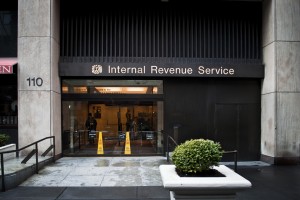03/10/2017
Top 3 Things To Know about Qualified Small Employer Health Reimbursement Arrangements
When Congress passed and the President signed The 21st Century Cures Act at the end of 2016, a new benefit option became available for small employers. The legislation includes language allowing for Qualified Small Employer Health Reimbursement Arrangements, or QSEHRAs. These plans allow small employers to offer a Health Reimbursement Arrangement (HRA) to employees as an option to help pay for medical expenses.
Prior to healthcare reform, many employers used HRAs as a way to help their employees pay for their medical expenses while staying within the employer’s budget. Healthcare reform has limited the options available for small employers. In addition to small employers who are looking for ways to help pay for their employees’ medical expenses, the passing of this bill is welcome news for those employers who may have offered an HRA previously and had to end the plan to remain in compliance with healthcare reform.
Here are the top 3 things to know about QSEHRAs:
1. There are specific criteria that must be met in order to offer the HRA described in the bill. Some of these criteria include:
- The employer must be a small employer(employers with 50 or fewer employees who are not considered Applicable Large Employers (ALEs)).
- The employer does not offer a group health plan.
- The employee has minimum essential coverage through another source.
2.There are notification requirements the employer must meet in order to offer the plan.
A notice must be sent to employees 90 days before the start of the plan year. Transition relief is provided for employers who have implemented the plans immediately, with notices being required to be sent by March 13, 2017. The notice must include the following:
- A statement of the employee’s allowed benefit.
- A statement advising the employee they are responsible for notifying the insurance exchange of their HRA coverage amount for the purposes of determining eligibility for the premium tax credit.
- A statement explaining if the employee is not covered by minimum essential coverage for any month during the year the amount for any expenses incurred during that time and reimbursed will be taxable income to the employee.
3.The plan can reimburse individual insurance premiums in addition to all other eligible expenses as outlined in IRS Code Section 213(d).
- QSEHRAs are designed to allow employers to reimburse individual insurance premiums if they would like to include these expenses as part of their plan.
- Reimbursements from the plan for all expenses are limited to $4950 per year for single coverage or $10,000 per year for family coverage.
These new plans provide an additional option for small employers who may not be looking to offer a group health insurance plan, and still would like to assist their employees with their out of pocket medical expenses.
BusinessPlans, Inc. – myCafeteriaPlan does not intend to provide legal or tax advice and information contained in this article should not be interpreted as such. Regulations governing pretax plans are often open to interpretation and should be reviewed with your legal or tax advisor before making any decisions regarding your plan.
Posted 3/10/17